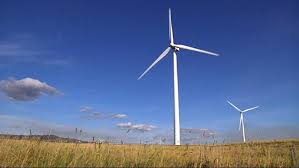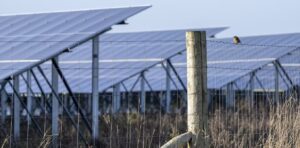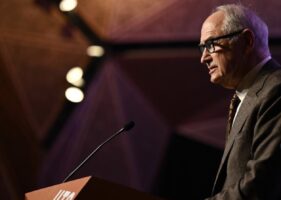Australia’s renewable energy industry is reeling from news that the Prime Minister and a group of senior Cabinet Ministers propose dramatic cuts to the Renewable Energy Target scheme, despite the Government’s own independent Review Panel finding that the scheme helps to reduce power bills for electricity consumers over the medium term.
Infigen Energy believes that the Prime Minister has struck a blow that will hit investors, employers and Australia’s reputation as a stable investment environment.

The reported intentions of Mr Abbott amount to economic vandalism, pandering to the climate sceptic minority and represent a total misread of community aspirations. How does this fit with the PM’s often stated position that ’Australia is open for business’?
Work undertaken by the Review Panel showed that if the scheme was cut back or scrapped, electricity consumers would be worse off. This finding was consistent with previous modelling work undertaken by the independent Climate Change Authority, the renewable energy industry, large electricity users and Bloomberg showing that the effect of renewables’ free fuel was to push down wholesale electricity prices by more than the small cost of the scheme.
Another breach of trust and broken promise
What investors and financiers will find most troubling is the betrayal by the Coalition whose election campaign had trust and integrity at its core. The Coalition’s promise to maintain the RET was categorical.
In the lead up to the last Federal election, when addressing over 500 people at the renewable energy industry’s annual Clean Energy Week convention in Brisbane, Senator Simon Birmingham said, “It has been interesting to note the claims being made about what the Coalition will or won’t do though. All of it is simply conjecture. Can I make clear, the Coalition supports the current [RET] system, including the 41,000 GWh target. We know and appreciate that the industry wants certainty.”
Ministers Macfarlane and Hunt subsequently confirmed that Senator Birmingham had authority to say this at the time, including confirming authority for the specific reference to support for the 41,000 GWh target.
Earlier this month the Prime Minister said, “I expect all of the crossbench senators to be true to their pre-election commitments.” Renewable energy investors and financiers, and all Australians are entitled to expect this from the Prime Minister and the Coalition.
A handout to electricity retailers and bad news for consumers
Even the lone dissenting modelling report by Deloitte showed that if you bias all the input assumptions to completely unrealistic levels, the net cost of the scheme would be less than one dollar per week for a typical consumer.
All of the reports were consistent in finding that the main beneficiaries of a cut in the RET scheme would be the big three electricity retailers who already control three quarters of the electricity market.
I find it very disturbing that the Government would force electricity consumers to pay more for their electricity by cutting the RET, whilst giving a multi-billion windfall gain to the large integrated power utilities.
This approach will result in reduced competition in the electricity market and lock in place our reliance on coal fired generation plant that is already well beyond its efficient design life. Our reliance on increasingly expensive gas fired generation would also increase. It’s a lose-lose-lose outcome for electricity consumers.

Investments and tens of thousands of Australians’ jobs now at risk
Since the inception of the RET by the Howard government, the Australian renewable energy industry has invested over $20 billion in renewable energy assets and currently employs over 20,000 people. These achievements were borne from 13 years of bipartisan support needed to underpin long term capital intensive investments. The industry had been projecting continued growth in investments and jobs under the existing scheme but Mr George said the Government’s proposal to dramatically cut back or scrap the scheme would ruin the industry and destroy existing investments made in good faith reliance on the bipartisan policy.
Another signal that the government does not welcome infrastructure investment?
In his address to the World Economic Forum in Davos, Switzerland, on 23 January this year, the Prime Minister said, “As an ‘infrastructure prime minister’, my hope as G20 host, is to bring policy-makers, financiers and builders together to identify practical ways of increasing long-term infrastructure financing. What investors really need is greater confidence that governments won’t change the rules after the investment has been made.”
The Government seems intent on sending a message to Australian and global investors that their money, time and effort is unwelcome and certainly not safe under the Coalition government, totally contradicting the need for confidence in governments espoused at the World Economic Forum. The cost of doing business in Australia has just gone up.
Such an approach shows a lack of appreciation of the sovereign risk aspect of changes to legislation, which affect long term infrastructure assets. Infigen’s shareholder base of over 20,000 investors had invested in renewable energy in Australia on the basis of a fixed target of 41,000 GWh by 2020. This is no different to investors in private public partnerships acquiring a toll road concession or port lease.
If the Government pulls the rug from under existing investments in renewable energy don’t expect investors to come back to buy other infrastructure assets in this country.
Miles George is managing director of Infigen Energy and chairman of the Clean Energy Council.










